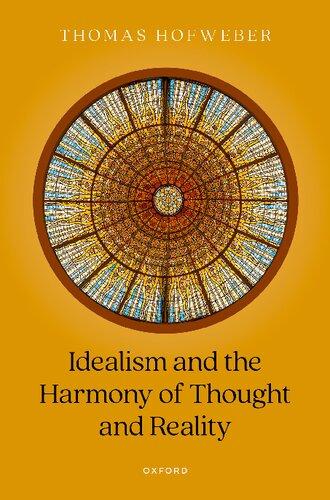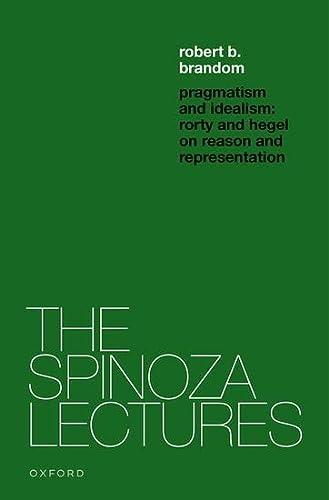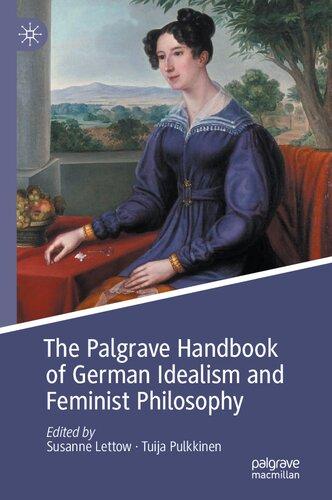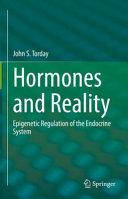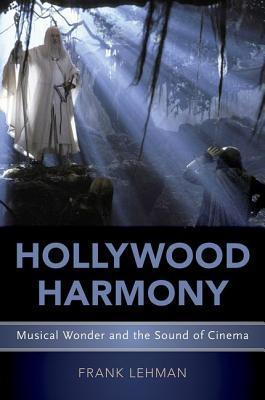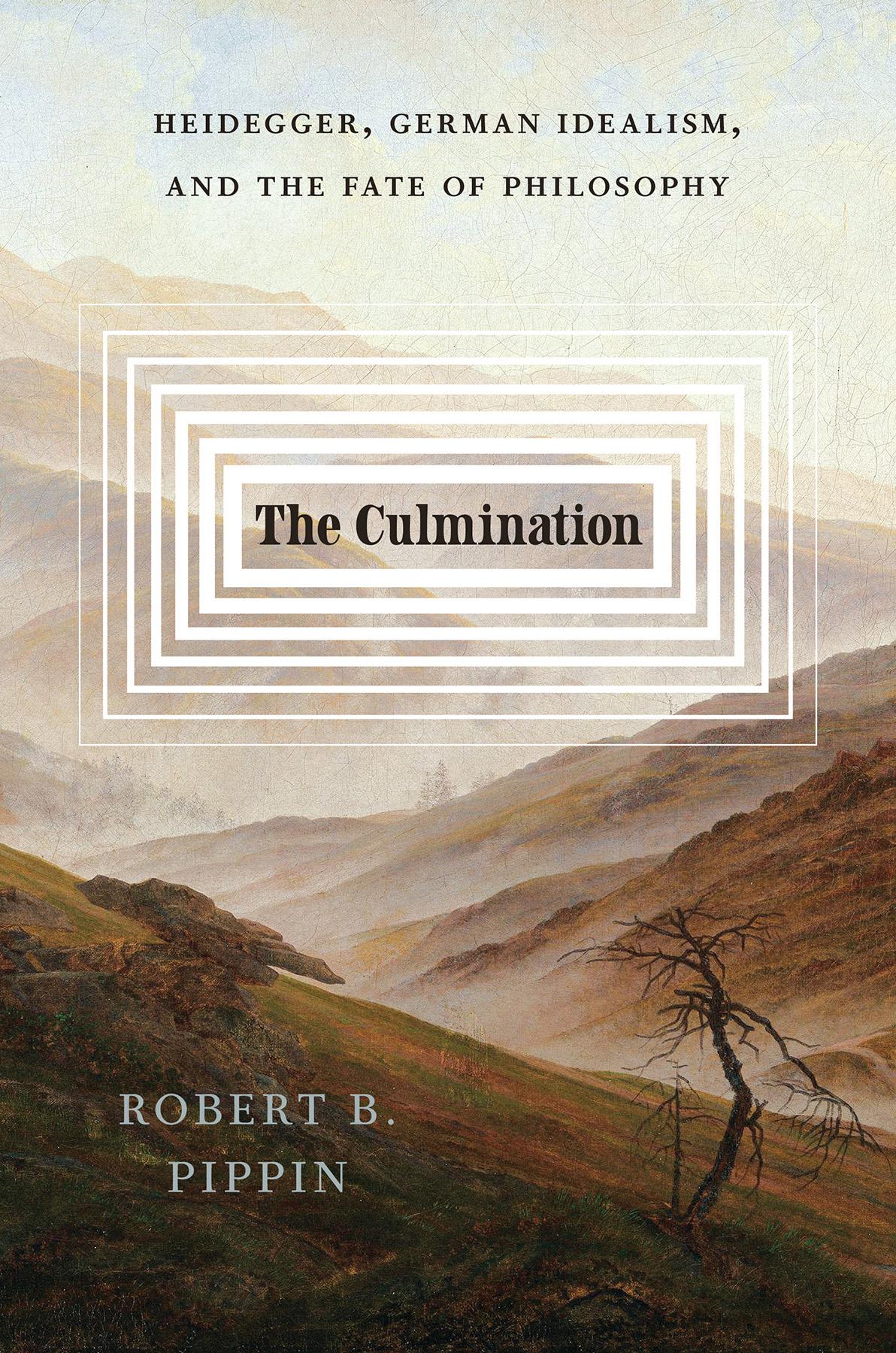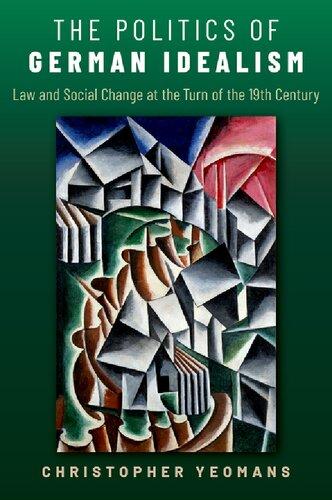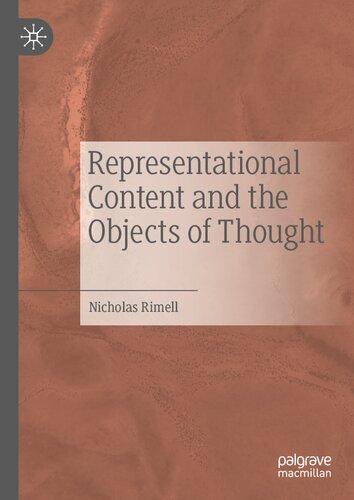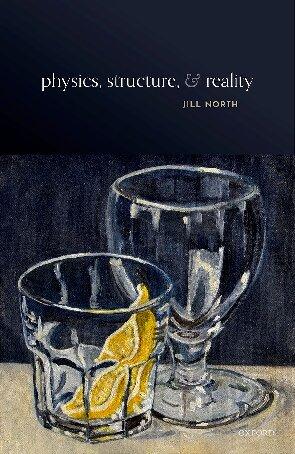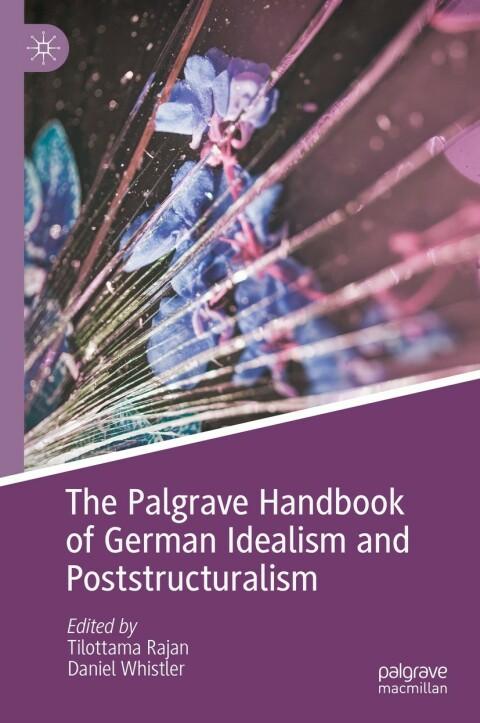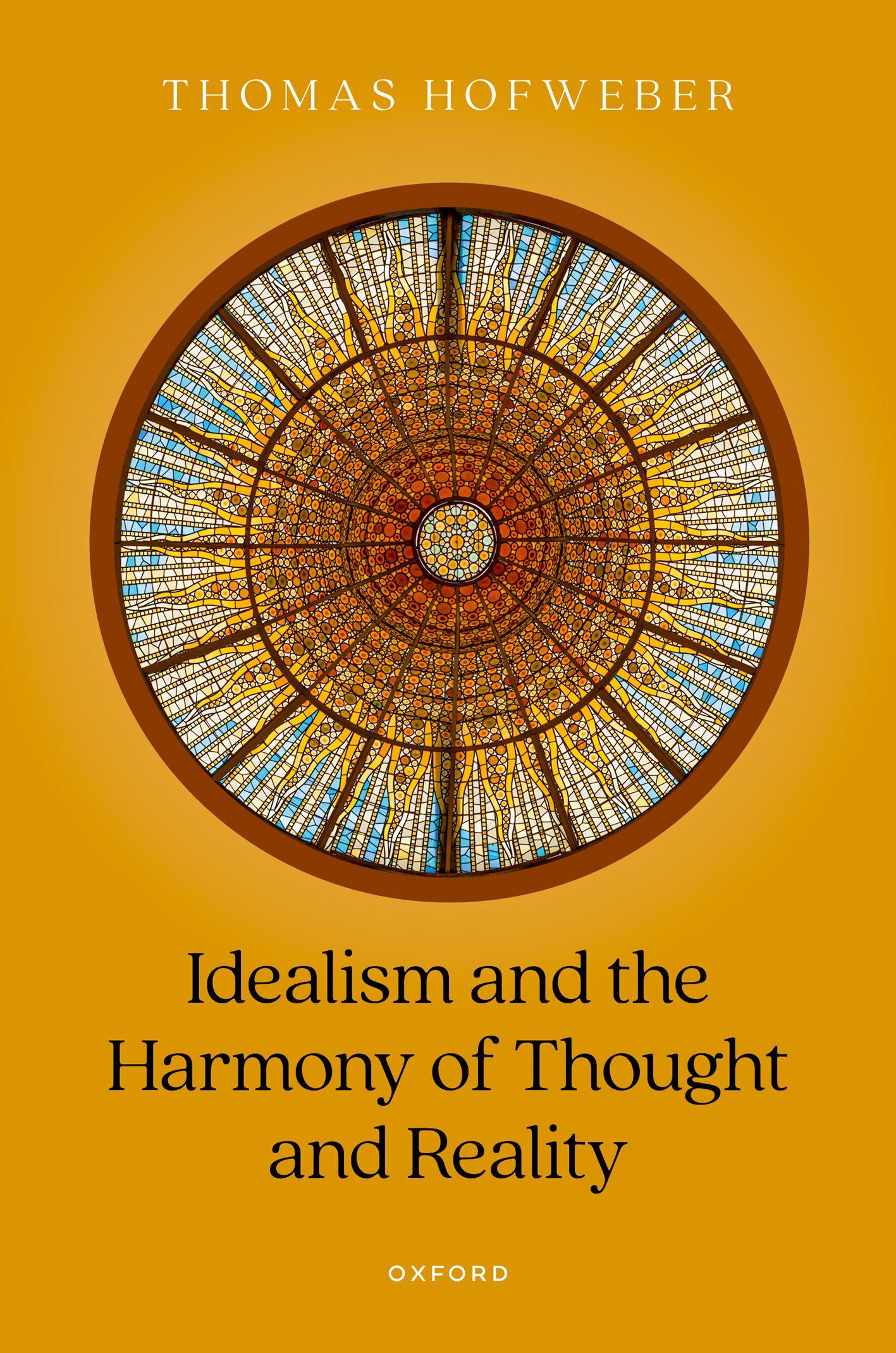fürmeineMutter
ChristianeHofweber undzumAndenkenanmeinenVater
JosefHofweber
8.Conceptualidealism:theoverallpicture
Preface
Thisbookadmittedlydefendsidealism,butit’snotasbadasthatsounds.Iknow itsoundsbad.Idealismseemstogoagainsteverythingwehavelearnedoverthe lastcoupleofcenturiesabouttheworldandtheplaceofmindsinit.Mindsare puzzling,tobesure,butnowadaystherealpuzzleistakentobehowthementalfits intothematerialworld,whichistosay,howtonaturalizethemental.Thereisno largerplaceformindsinmetaphysics,andthereespeciallyisnoplaceforanything likeidealism.‘Idealism’isthusabadwordthesedaysinlargepartsoftheEnglishspeakingphilosophicalscene.Itisthekindofviewthatpeopledefendedinthe historyofphilosophy,beforeweknewbetter,aviewthatisnowmerelyofhistorical significance.Andthereundoubtedlyissomejustificationforthisnegativeattitude towardsidealism.Itisoftenassociatedwithpositionsthatarerightlyrejected,like theviewthatthereisnoworldoutsideofourminds.Furthermore,thewritingsof contemporaryself-declaredidealistscansometimesberatherhardtounderstand, andrelyheavilyonhistoricalfigures,whointurncanbehardtounderstand.No wonderidealismisn’texactlypopularanymore.
Butidealismcandosomuchbetterthanthat.Thereareanumberofintriguing, althoughoftenneglected,optionsfordefendingidealismthatmakeperfectsense, don’trelyonhistoricalfigures,aren’tinconflictwithwhatwehavelearnedabout theworld,andaresupportedwithintriguingarguments.Allofthemshouldbe seenasrealcontendersincontemporarymetaphysics.Iwillcriticallydiscuss severalsuchoptionsbelow,andaddonemoretothelistthatIbelieveisthe correctone,whichIwilllabel‘conceptualidealism’.AlthoughIwillarguethatthe otherformsofidealismtobediscussedfaceaseriesofproblemsthatgiveusgood reasontorejectthemintheend,theyshouldnonethelessallbetakenseriously. Conceptualidealismovercomestheseproblems,anditisnotjustacontender,but theversionofidealismweshouldaccept.Todefendthisviewandhighlightits significanceisthemaingoalofthisbook.
Conceptualidealismisanespeciallyradicalversionofidealism.Itisnotjusta formofidealismingeneral,whichholdsthatmindsaremetaphysicallycentralin theworld,butastrongerposition,whichholdsthatourhumanmindsinparticular aremetaphysicallycentralintheworld.Theultimatetargetofthisbookisthusthe metaphysicalstatusofhumanbeingsandourplaceinrealityasawhole.Idealism alonesoundsbadalready,butaclaimofthemetaphysicalcentralityofhuman beingstakesitastepfurther.Ihopetomakeclearinthechapterstocomethatthis isalsonotasbadasitsounds.Itdoesnotmeanthatourspeciesisdisconnected fromotherspecies,northatearthisthecenteroftheuniverse,northathuman
beingsaremorallyinaclassoftheirown.Butitdoesmeanthathumanbeings haveaspecialplaceinmetaphysics,notjustasitconcernsourlocalenvironment, butasitconcernsrealityasawhole.
Allthatmightsoundbadenough,butitgetsworse.Iwillarguethatwecansee thespecialmetaphysicalstatusofhumanbeingsinrealityasawholesimplyby reflectingonourownrepresentationsofreality.Wecanseethatourhumanminds andrealityareinakindofharmonythatsupportsourspecialmetaphysicalstatus simplybythinkingabouthowwerepresentreality,withnoregardtowhetherthese representationsaretrue.Simplybylookinginwards,atourownconceptsandour ownlanguage,withoutconsideringwhatrealityisotherwiselike,canweestablish thataharmonybetweenourmindsandallofrealityhastoobtain.
Thiswayofarguingforidealismisanexampleofaparticularapproachto makingprogressinmetaphysics,whichIwilldevelopbelowandlabel‘immanent metaphysics’.Immanentmetaphysicstakesseriouslythatwestartoutwithsome questionswehopetoanswer,andthatsuchquestionsarestatedbyus,usingour conceptsandourlanguage.Itcontrastswithapproachesthatfocussimplyongivingadescriptionofrealityinsomelanguagethattheworlditselfrecommends,as iftheworldhadalreadyaskedaquestionforustoanswer.Thebookwillconclude withsomereflectionsonwhatwecanhopetoachievewithimmanentmetaphysics, howitrelatestotherestofmetaphysics,whyitdeservestobecalledneo-Kantian, andhowweshouldunderstandconceptualidealismasametaphysicalposition. Letmebrieflysayhowwegettherebyoutliningthechapterstocome.
Chapter1startswiththequestionofthemetaphysicalplaceofhumanbeings intheworld,andhowacertainstrongformofidealismcouldanswerit.Such ananswerwouldaddafurtheranswertothemix,besidesthefamiliartheistic answerthatwehaveaspecialplaceduetoourconnectiontoadivinebeing,andthe familiarnaturalisticanswerthatwehavenospecialplaceatall.Ioutlinesomebasic optionsforformulatinganddefendingidealism,andsomeminimalconstraints thatanyreasonabledefenseofidealismmustmeet.
Chapter2considersaseriesofattemptstodefendidealism,allofwhichIargue shouldberejected.Nonetheless,theyincludeseveralintriguingandneglected options,besidesthemorefamiliarphenomenalisticformofidealism.Thischapter hopestomakeclearjusthowvaried,interesting,andpromisingidealismcanbe. Italsohopestomakeclearthatanydefenseofidealismfacescertainproblems, whichareseriousenoughtosinktheso-fardiscussedversionsofidealism.Any newproposalwillneedtodobettertoovercometheseproblems.
Chapter3presentsthebasicideabehindconceptualidealism,theformof idealismIdefendinthisbook.Iproposethatwecanformulateidealismviathe notionofaharmonybetweenourmindsandreality,andthatwecanestablish thatthisharmonyobtainswithargumentsfromthephilosophyoflanguage.We willdiscusshowconsiderationsfromthephilosophyoflanguagecouldpossiblysupportmetaphysicalpositions,andwhatstatusourownquestionshavein
metaphysics.Thischapteroutlinesthemainideasofthisbook,whicharethen developedanddefendedmorecarefullyinthechapterstocome.Ifyouonlyhave timetoreadonechapter,I’dsaypickthisone.
Chapter4clarifiesanddefendsthepositioninthephilosophyoflanguagewhich impliesthatharmonyobtains,andwithitthatidealismholds.Iwillformulateand defendapositionlabeled‘internalism’,whichconcernshowwetalkaboutfacts withthat-clausesandhowtounderstandquantificationoverfacts.
Chapter5strengthenstheversionofharmonythatcanbeestablishedvia internalism,andwithittheproposedversionofidealism.Thisproceedsviaa clarificationofthenotionofanineffablefact.Inparticular,Iwillstrengthenthe argumentfromChapter3infavorofstructuralharmonytoanargumentforthe noticeablystrongerandmoreradicalthesisofcompleteharmony.
Chapter6concernsthegeneralproblemofachievingresultsabouttheworldvia considerationsofourownrepresentationsoftheworld,andpresentsanargument thatthisisindeedpossible.What’smore,thischapterdefendsthatnotonlycanwe answerquestionsaboutrealitybythinkingaboutourrepresentations,incertain specialcaseswecanevenfindoutthatweaskedtherightquestiontobeginwith. Andwecandoallthatsimplybythinkingaboutourownrepresentationsalone, withoutantecedentlyknowingwhatrealityislike.Iwillarguethatjustthisis thecasewiththequestionaboutourplaceinrealityandwiththeargumentfor conceptualidealism.Akeyideaherewillbetoconsideraspecialclassofour concepts:inescapableconcepts,whichareconceptsthatonecannotrationally replacewithotherones.
Chapter7continuesthediscussionofthepossibilityoffindingoutthatone asked,andanswered,therightquestionsimplyfromconsiderationsaboutourown representationsalone.Itdivesdeeperintotheissueofwhatfollowsfromthefact thatonecan’trationallyacceptthatthereisabetterquestionthantheonethat wasalreadyasked.Wewillconsiderwhetheritiscoherentthatrationalitymight trapusintohavingtothinkthis,evenifitisfalse.Andwewilldiscusstwogeneral approachestothestatusofaninitialquestioninmetaphysics,andhowtoimprove fromthere.ThechapterdefendswhatIlabelthe‘immanentstance’,whichtakesour ownstartingpointseriously,andcontrastsitwiththetranscendentstance,which disregardsourstartingpoint,andfocusesontheallegeddemandsfromtheworld foraparticulardescription.
Chapter8finallyputseverythingtogether.Itarguesthatconceptualidealism establishesthemetaphysicalcentralityofhumanbeingsinreality,itshowshow conceptualidealismovercomestheproblemsthatrefutedotherversionsofidealism,itoutlinesthemetaphysicalpicturetiedtoconceptualidealism,itpresents thestrategyofmakingprogressinmetaphysicsviaimmanentmetaphysics,it elaboratesonthecomparisonwithKant’sphilosophy,anditlooksaheadatwhat elseonemighthopetoachievethisway.Ihopethatbythispointidealismwon’t soundallthatbadanymore.
Iamindebtedtomanypeoplefortheirhelpwiththisproject.Inadditionto allthosementionedbelow,IprofitedfromdiscussionswithatleastRalfBader,Jc Beall,PaulBoghossian,TimButton,DaveChalmers,AaronCotnoir,PaulEgré, DaveEstlund,HartryField,MichaelFriedman,AnjaJauernig,ToniKoch,Matt Kotzen,MartinLipman,AlanNelson,ManishOza,KennyPearce,JeffPelletier, TobiasRosefeldt,ThomasSattig,KevinScharp,UlrichSchlösser,NickStang,Rob Trueman,GabrielUzquiano,andHelenYetter-Chappell.
MythankstomysincedispersedlocalidealismsupportgroupatUNC,which wasverysupportiveduringthetimeIcametotermswithbeinganidealist,and veryhelpfulinfiguringoutwhatformthatidealismshouldtake.Itconsistedofvariousidealistsandidealismsympathizers,includingBobAdams,KrasiFilcheva,Bill Lycan,whoco-taughtagraduateseminaroncontemporaryversionsofidealism withmeinthespringof2013,RobSmithson,andCraigWarmke.
IwasfortunatetogetveryhelpfulcommentsonindividualchaptersfromMatti Eklund,MarkusKohl,MarcLange,RamNeta,MikePelczar,JimPryor,TedSider, andAlexWorsnip.
Anearlierversionofthemanuscriptwasdiscussedinagraduateseminarat UNCinthefallof2020.Forcritiqueandmanygoodsuggestionsforimprovement IamindebtedtoCalFawell,GenaeMatthews,ConnerSchultz,AlyseSpiehler, RipleyStroud,AaronThieme,ZachThornton,NolanWhitaker,andAuroraYu.
MaterialfromthisbookwaspresentedatBerkeley,FUBerlin,Brown, Cambridge,Cornell,Düsseldorf,Jerusalem,JohnsHopkins,Madrid,Minnesota, Munich,Northwestern,NYU,OhioState,Oxford,Rice,SimonFrasier,St.Andrews, Stockholm,Syracuse,TelHai,Toronto,Tübingen,UConn,UNC,Uppsala,and Zurich.Thankyoutoallthosewhocametothetalksandespeciallythosewho stayedtoparticipateinthemanygooddiscussionsthatfollowed.
MythankstotworefereesforOUPfortheirdetailedandhelpfulcommentson anearlierdraft,andtoPeterMomtchiloffforhissupportandguidance.
ThisbookwaswrittenusingTexShop,BibDesk,andLATEX,allfreelyavailableand terrific.Iamindebtedtothosewhodonatedtheirtimeandskilltothedevelopment ofthesetools.
IwouldalsoliketogratefullyacknowledgeaWNReynoldsSeniorFaculty ResearchandScholarlyLeaveduringthespringof2021,whichgavemetimeto workonthisbook.
Likeeveryothercontemporarybook,muchofthisbookwaswrittenduring theCovid-19pandemic,usuallyathome,inthekitchenorweatherpermitting ontheporch,wishingforahomeoffice.IgreatlyprofitedfrommySonyWH1000XM3noisecancelingheadphones,whichmadeprogresspossibledespitethe besteffortstodefeatanypeaceandquietbyourkids,cats,dog,androosters.My thankstoRebeccaWalkerforsharingthekitchentablewithmewhileworkingon herownbook.
Idedicatethisbooktomyparents,onelivingandonedead,ingratitudeforall theirlove,theband-aids,andthebreakfastsIdidn’teat,sinceIgotuptoolateand hadtoruntocatchthetraintoschoolinstead.Theyweren’tthrilledbymygoing intophilosophyandontopofthatmymovingtotheUnitedStatestodoso,but theyweresupportivenonetheless,thenandduringalltheyearsthatcamebefore andafter.
Idealismandourplaceintheworld
1.1TheBigQuestion
Whatistheplaceandsignificanceofhumanbeingsintheworldoverall?Are wespecialormerelymoreofthesame?Dohumanbeingshaveadistinguished standinginrealityoverall?Thesearenaturalandpressingquestions,inparticular forushumanbeings.Butastheyarestatedtheyareneitherveryprecisenordothey gettotheheartofthematter.Humanbeingsmightwellbespecialinanumberof ways,butthatbyitselfdoesn’tanswerthequestionasitisintended.Wemightbe thebestatmusic,say,notjustonearth,butanywhere.Butevenifnobettermusic isevermadeanywhere,thatbyitselfdoesnotmakeusspecialintherightway. Byitselfitwouldn’tbemuchdifferentthanbeingthelargestvolcano.Thelargest volcanoisspecial,too,butagainnotintherightway.Toputitmetaphorically,the universemightnotcareaboutvolcanosize,anditsimilarlymightnotcareabout music.Ifwearespecialinawaythatmatters,thenjustbeingthebestorworstat somethingisn’tenough,eventhoughitdoesmakeusspecialinaparticularway. Therealissueissomethingelse,somethinggrander,somethingabouthowwefit intotheworldasawholeinlarge-scaleways.Buthowtostatethatlesselusivelyis notsoclear.Toapproachitmetaphoricallyoncemore:whentheoverallstoryof realityiswritten,willweappearinthemaintext,orarewemerelymentionedina footnote,ifatall?Beingthebestatmusicwillatbestputusintoafootnote,unless, ofcourse,musicisreallyimportantforthelargeroverallstoryofreality.Toappear inthemaintext,wewouldhavetobeimportantforrealityoverall.Wewouldhave tosomehowbecentralforthegrandormostgeneralaspectsoftheworld,notjust forsomelocaleventsorsomeparticularfeatures.Toputalabelonitthatatleast pointsinacertaindirection,wewouldhavetobemetaphysicallycentraltoreality tobeinthemaintextandtobesignificantintheintendedway.Thisstillisnot especiallyprecise,butit’sastart.
Letuscallthe BigQuestion aboutourplaceintheworldthequestionthatwe intendtoaskwhenweaskaboutwhetherwearespecialwhilereflectingonthe significanceofhumanbeingsinreality.HowtoarticulatetheBigQuestionmore explicitlyisunclear.Metaphoricalattemptscanhelppointinacertaindirection, butbythemselvestheyarenotenough.Tomakeprogresswecantrytoapproach thequestionviaitstwomostprominentanswers.Theseanswersseemtoanswer thequestionasitisintended,andthiswaytheanswerscanshedlightonthe
questionitself.Oneofthesetwoanswersholdsthatwearenotsignificant,the otheroneholdsthatweare.
Thefirstisthe naturalisticanswer.Itholdsthatwearenothingbutacomplex andaccidentalarrangementofthesamematterthatisfoundeverywhereelseas well.Thatmattereverarrangeditselfinthiswaydidn’thavetohappen.Itisatbesta luckybonustoreality,butnotacentralpartofit.Ifmatterhadn’tarrangeditselfthe wayitdidwhenitformedus,thennothingofglobalsignificancewouldhavebeen lost:theworldwouldotherwisehavebeenjustasitis,exceptforalocaldifference ononesmallplanet.Butoverall,fromthepointofviewoftheuniverse,nothing muchwouldbedifferent,andsowearenotgloballysignificant.Ourinfluenceand significanceintheworldislocal,notglobal.Thereisnospecialplaceforusinthe storyofrealityasawhole.
ThesecondanswertotheBigQuestionisthe theisticanswer,whichsaysthatwe aresignificantintheintendedway.Wehaveaspecialanddistinguishedplacein theworld,sincewehaveaspecialrelationshiptoGod,onethatnoothercreature has.Wearecentraltotheworld,sinceweareingoodpartthereasonwhythereisa materialworldinthefirstplace.Godcreatedthematerialworldforusandwithus inmind.ThusviaourrelationshiptoGodwehaveacentralplaceinthematerial world,andwithitinallofrealityaswell.
BothoftheseanswerstotheBigQuestionarewellknownandwidelydebated. Naturally,muchofthedebatebetweenthesetwoanswerscentersonwhether thereisaGodwhohasaspecialrelationshiptohumanbeingsinthefirstplace. ButbesidesthedebateaboutGod,therearealsootherargumentswhichare widelytakentosupporttheanswerthatwearenotspecial.Chiefamongthem aretheargumentsagainstthegeocentricworldviewandthatearthisnotinsome objectivelydistinguishedspatiallocation,andtheargumentsfromevolutionthat weareconnectedtootherspecies.HereitisoftensaidthatCopernicusandDarwin underminedourbeliefinoursignificanceintheuniverse.Butthosearguments misstheirtarget,andareatbestindirect,sincethespatiallocationofhumanbeings wasn’treallyatissuewhenwewonderedwhetherwearespecial.Theissueisnot whetherwearespatiallyspecial,butwhetherwearespecialinother,moreelusive ways.BeingconnectedtoGod,andtothereasonwhythereisamaterialworld atall,certainlywouldmakeusspecialintheintendedway.ButwithoutGodthis lineofreasoningwillgonowhere,andthusnaturallythedebateaboutourplaceis focusedontheexistenceandnatureofGod.
ButthereisalsoathirdanswertotheBigQuestion.Thisanswerusedtobe morepopularinthehistoryofphilosophy,butithasnowadaysalmostcompletely disappearedfromseriousconsideration.Onthisanswerwearecentraltoreality, notviaaconnectiontoGod,butmoredirectly:wearecentraltoreality,sincethere isanintimaterelationshipbetweenourmindsandrealityitself.Wearesomehow centrallytiedtoreality,sinceourmindsandrealityareinextricablylinked.This thirdanswertotheBigQuestionisthusan idealistanswer:ittakesinspiration
fromidealism,roughlythepositionthatmindsplayacentralmetaphysicalrolein reality.
Idealisminsomeformorotherwaswidelydefendedinthehistoryofphilosophy,butitisnowadaysalmostuniversallyconsideredanon-starter.Idealismis generallytakentofaceaseriesofunsurmountableproblems:itisunclearhowthis intimateconnectionbetweenmindsandrealityissupposedtobeunderstood,itis unclearwhatgoodreasononemighthavefortherebeingsuchaconnection,and itseemstogocontrarytowhatwebynowknowabouthowmindsaroseoutof matterthroughalongprocessofevolutionoccurringinanalreadyexistingworld. Theseareallverygoodpoints,andIthinkitisfairtosaythattheidealistanswer doesnotlookverypromising.Nonetheless,itisthisanswerthatIhopetodefendin thisbook.Weareindeedspecialintheworld,sinceourhumanmindsarecentrally involvedinallofrealityinawaythatotherthingsarenot.Thereisanintimatelink betweenourmindsandallofrealtythatmakesclearthatwhenthestoryofthe worldasawholeiswritten,thisconnectionmustbementionedinthemaintext orsomethingreallyimportantisleftout.
InthisbookIhopetomakeclearwhatthisintimateconnectionbetween ourmindsandrealityis,whatreasonswehaveforitobtaining,andwhyall thisiscompatiblewithwhatweotherwiseknowabouthowmindsaroseinthe materialworld.Thisposition,ifcorrect,wouldsupportthatweareindeedspecial andcentraltoallofreality.Itwouldsupportametaphysicallyspecialstatusof humanbeingsintheworld,althoughnotviatheirspatiallocation,norviatheir distinctionfromotherspecies,norviaaconnectiontoGod,butviaadirect, intimateconnectionbetweenourmindsandrealityitself.
AnydefenseofanidealistanswertotheBigQuestionmustrightlyseem suspicious.Itwillappeartobemorewishfulthinking,derivedfromsomedelusion ofgrandeurforhumanbeings,andexpressingadeepdesireforsignificancerather thanapositionthatcanbedefendedonitsmerits.Iagreethatthisistheproper initialreactiontoit,but,nonetheless,Iwillarguethatthepositionstandsonits meritsandnotwishfulthinking.Forwhatit’sworth,IarrivedatthepositionI defendhereslowly,defendingpositionsinvariousdebatesinmetaphysicsandthe philosophyoflanguageovertheyearswhichonthefaceofithavelittletodowith idealism.Butastimewentonitdawnedonmethatthesepositionsarerelatedto idealism,thattheyindeedsupportaparticularformofidealism,andwithitathird, idealistanswertotheBigQuestionaboutourplaceinreality.Ihopetospellout anddefendalloftheseclaimsinthisbook.
Butfirstweneedtomakeprogressonidealismitselfandtrytogetcleareron whatitinvolvesandwhatkindofpositionitis.Sofarwehavemostlyapproached itmetaphorically,forexample,astheviewthatholdsthatthereisanintimate connectionbetweenourmindsandrealityitself.Beforewecanseriouslyconsider defendingidealismwethusneedtogetcleareronthisview,aswellaswhatwould berequiredforaproperdefenseofidealism.
1.2Idealism:themainidea
Idealismis,firstandforemost,agrandvisionabouttheplaceofmindsinreality. Thatvisionisametaphysicalone,aboutwhatrolemindsplayinthemetaphysicsof theworld.Broadlyunderstood,idealismistheviewthatmindsaremetaphysically centraltoreality.Thisatfirstleavesmanyquestionsopen,inparticularwhat metaphysicsissupposedtobeandwhatcountsasbeingcentralforit.Asafirst approximation,metaphysicstriestofindoutwhatrealityislikeinthemostgeneral ways.Formindstobecentralforwhatrealityislikeinthemostgeneralwaysmeans atleastthatthecorrectmetaphysicsoftheworldwillgivemindsacentraland importantroleinitsaccountofwhatthemostgeneralfeaturesofrealityare.How importantandcentralthatroleisis,ofcourse,amatterofdegree,buttherewill beclearthresholdsforbeingsufficientlyorinsufficientlycentralforaparticular positiontocountasidealismornot.Butsofarallthisisnaturallyjustafirst approximation.
ThemostparadigmaticidealistpositioniswhatIwillcall classicalidealism. Classicalidealismisapositionabouttherelationshipbetweenmindsandmatter. Whereasmaterialismholdsthatmindssomehowarisefrommatter,anddualism holdsthatmindsandmatterareindependentofeachother,classicalidealism holdsthatmattersomehowarisesfromminds.Classicalidealismthusinvertsthe orderofprioritybetweenmindsandmatterfrommaterialism:matterisderivative onminds,notmindsonmatter.Sounderstood,idealismisincompatiblewith materialism,andthisishowidealismisoftenunderstood.Butthisincompatibility isspecialtoclassicalidealism.Classicalidealismclearlyisidealismonourbroad understandingofthelatterterm,sinceifmattersomehowisderivativeonminds, thenmindswillclearlybemetaphysicallycentraltoreality.Butmindsmightbe metaphysicallycentralinmanyotherwaysthangivingrisetomatter.Itcouldbe, justtomentionsomeexamples,thatmindsarenotcentralfortherebeingmatterat all,butforwhichchunksofmattercomposeanobject,orforwhatmatterislikein variousways,orforwhattheultimatepurposeofmatteris,andsoon.Thusclassical idealismisclearlyidealism,butidealismshouldbeunderstoodmorebroadlythan merelyasclassicalidealism.Andonthisbroaderunderstandingitmightwellbe compatiblewithmaterialism.1
1 Aterminologicalsidenote:someidealiststhinktheidealistpositionisthatthereisnomatter, andthatobjectsarethusmadeupfromsomethingotherthanmatter.Onthisstrictuseof‘matter’, matteritselfisincompatiblewithidealism.Onamorelooseuseof‘matter’,matteritselfisneutral betweenidealismanditsopposition,andthequestionremainswhethermatterismind-dependentor not.Famously,Berkeleydeniedtheexistenceofmatter,andthususedthatnotioninthestrictsense, sincehedidnotdenythattablesexistandaremadeupofsomethingorother.Iwillusetheterm ‘matter’intheloosesensehere,andthusacceptthattablesaremadefrommatter,butthisleavesopen whatmatterislike,whetheritismind-dependentormental,andwithitwhetheridealismistrue.This differenceismerelyterminologicalandofnosubstance,butworthclarifying.
Understandingidealismbroadly,however,canquicklybecometoobroad: mindsmightbemetaphysicallycentralintheworldinwaysthatintuitivelyare notidealistways,asthetermisoftentakentobe.Forexample,ifGodcreated theworld,thenGod’smindispresumablymetaphysicallycentraltoreality,and thusmindsarecentraltoreality.Takingthistobeidealismseemstogotoofar, sinceGod’screationoftheworldalonedoesn’tseemtobeenoughforidealism tobetrue.Idealismconcernshowtheworldis,afterall,nothowitcametobe. Hereitmightbetemptingtosimplyexcludecausaldependencefrommindsbeing metaphysicallycentralandtofocusonnon-causaldependenceinstead.Butthis hastwoproblems.First,itreliesonthenotionofnon-causaldependence,which canseemjustaselusiveasthatofcentrality.Thisisespeciallyvividinproposalsthat holdthatidealismistobeunderstoodastheviewthatthenon-mentalisgrounded inthemental.2‘Grounding’insuchaproposallikelyneedstobeunderstoodasa placeholderforoneofmanyyettobespelledoutsensesofdependence,andthus simplypushestheissuetowardsthesesenses.3But,secondly,thismovedoesnot avoidtheissueofcentrality.Itistoostrongforidealismtodemandthatallnonmentalfactsaregroundedinmentalfacts,sincesomeonewhoholdsthatallexcept mathematicalfactsaregroundedinmentalfactsisclearlyanidealist.Similarly,if onedemandsonlythatallconcretenon-mentalfactsaregroundedinthemental, thenthisisstilltoostrong,sincesomeonewhoholdsthatallnon-mentalfacts exceptthelawsofgravity,say,aregroundedinthementalisstillanidealist.Andit istooweaktoholdthatsomenon-mentalfactsaregroundedinmentalfacts,since everyonewillholdthatonanyreasonablewayofunderstandinggrounding.What mattersishowcentralthementalistothenon-mentalmetaphysically,beitvia groundingorotherwise.ThusIfinditbesttostartwitharatherbroadandfairly neutralconceptionofidealism,riskingthatitistoobroad,andthennarrowingit downfromthere.Afterall,itisnottobeexpectedthatthenotionofidealismitself isperfectlyprecise,sinceitmerelycapturesacertainmetaphysicalvisionwhich includesaratherlargegroupofpositions,manyofwhichatleasthaveincommon thattheygiveametaphysicallycentralplacetomindsintheworld.⁴
Thusatfirstwecanunderstandidealismbroadly:
Broadidealism:Mindsaremetaphysicallycentraltoreality.
2 See(Chalmers,2019)and(GuyerandHorstmann,2015)forproposalstounderstandthe‘idealism’ alongthoselines.
3 See(Hofweber,2009),chapter13of(Hofweber,2016b),(Wilson,2014),andothersforacriticism ofgivinggroundingacentralroleinmetaphysics.
⁴ Theterm‘idealism’isalsousedinvariousotherwaysinphilosophy,whichIwillsimplyleave aside.Notonlyisitusedforthepositioninpoliticalphilosophyofstickingwithone’sideals,whichis, ofcourse,completelyunrelatedtoourtopichere,Ihavealsohearditusedforthemetaphysicalposition thatobjectsareclassifiedbyindependentlyexisting“ideas”orPlatonicuniversals,whichisalsoquite independentofourmaintopichere.Wearesimplyconcernedwiththeroleofmindsinreality.
Broadidealismconcernsthecentralityofmindsingeneral,betheyhumanminds, divineminds,oranyotherkindsofminds.Evenifbroadidealismweretrue,this wouldnottherebyanswertheBigQuestionaboutourplaceintheworld.Idealism isonlyofdirectrelevancetotheBigQuestionifitconcernsthecentralityofhuman minds,notjustanymindswhatsoever.Itisaquestionaboutourplace,nottheplace ofmindsmoregenerally.Ourmainconcernisthesignificanceofhumanbeings inparticular,notjustanybeingswithminds.Ourfocusthuswillbeontheissue whetherourhumanmindsaremetaphysicallycentraltoreality.Thisstrengthens broadidealism,sinceitrequiresthecentralityofourminds,notjustanyminds, andwecanthuscallitstrongidealism:
Strongidealism: Humanmindsaremetaphysicallycentraltoreality.
Ifstrongidealismweretrue,thenthiswouldanswertheBigQuestion.Ifourminds aremetaphysicallycentraltoreality,thenwewouldbespecialandsignificantinthe worldoverall.Theoverallstoryoftheworldwouldneedtomentionusinthemain text,notjustinafootnote.Thethird,idealist,answertotheBigQuestionwillthus requirestrongidealism,notjustbroadidealism.Theidealistpositiondefendedin thisbookwillsupportexactlythisstrongversionofidealism.
Broadandstrongidealismsarenotopposites.Instead,theyfocusontwo separatedimensionsofidealism.Broadidealismconcernsthecentralityofminds inrealityingeneral,notsomethingnarrowersuchastherelationshipbetween mindsandmatterorthegroundingofnon-mentalfactsinmentalfacts.Strong idealismfocusesonourhumanminds,notsomethingweakersuchasanyminds. Anarrowerversionofidealismcouldalsobestrong.Forexample,itmightbe thatourmindsinparticulargiverisetomatter.InthefollowingIwillconsider idealismingeneralasbroadidealism,andthenfocusonwhetherastrongversion ofidealismsounderstoodistrue.Sinceourfocusisthestrongformofbroad idealism,someoftheworriesaboutbroadidealismbeingtoobroadwilldisappear. Afterall,thepositionsthatarebroadidealisminletter,butnotidealisminspirit, likeGod’smindcreatingtheworld,donotcarryovertothestrongversionofbroad idealism.Noonesuggeststhatourmindscausallycreatetheuniverse.Whether broadidealismisintheendstilltoobroad,evenwhenrestrictedtostrongforms ofidealism,hastobeleftopenfornow,butIhopeitwillbeclearlaterthatthe examplesofstrongidealismdiscussedbelowarenotmerelyidealistinletterbut alsoinspirit.
Whatreasonmightanyonehaveforbeinganidealistand,inparticular,for beingastrongidealist?Aswewillseesoon,thereareanumberofmotivations foridealismthatcomefromvariousdifferentphilosophicalangles.Butfirstthere istheproblemofmakingsensemorepreciselyofwhattheidealistpositioncomes downto.Howarewesupposedtobecentraltoreality?Intuitivelythepictureis oftendrivenbyrathermetaphoricalstatements:thatthereisnoready-madeworld,
thatalthoughtheworldisinsomesenseindependentofus,inanothersenseitis dependentonourminds,thattheworldisconstructedbyourminds,thatthe worldisconstrainedbyourminds,andsoon.Inanutshell,somehowthereisa significantcontributionfromourmindstowardsmakinguprealityasitis,and realitythusdependsonourcontributionforbeinghowitis.Theproblemisto makesenseofthis.Howisittobeunderstoodthatrealitydependsonus,andin whatsenseofdependenceisthatsupposedtobe?Howcanwemakesenseofus makingacontributiontowhatrealityingeneralislike?Andhowcanwepossibly acceptanythinglikethis,giventhatweknowthatrealitywastherealreadybefore weeverenteredthescene?Weknowthathumanbeingsweren’taround100million yearsago,butrealitywasalreadythere,moreorlessasitisnow.Sohowcanwe beresponsibleformakingacontributiontowhatrealityingeneralislike?Tosay thattheworldisempiricallyreal,buttranscendentallyideal,orsomethingsimilar, onlyputsalabelontheissue,butdoesn’tresolvethedifficulty.
Itisinlightofsuchdifficultiesthatidealismhascompletelyfallenoutoffavor thesedays.Admittedly,idealismdoesseemlikeaterribleideaonthefaceof it,inparticularthestrongversionofidealism.Itisself-aggrandizing,andrings ofthegoodoldtimeswhenhumanbeingsthoughtofthemselvesasthecenter oftheuniverseandtheonlycreaturesofanysignificance,likeaspecies-level formofegomania.Itseemstoflyinthefaceofwhatwehavelearnedabout ourselvesandothercreaturesoverthelastfewhundredyears,andthusitfaces thelegitimatechargeofbeingantiquatedandonlyofhistoricalinterest.Because ofsuchassociations,‘idealism’isabadwordincontemporaryphilosophy.Peter Simonsstatesinprintwhatmanyotherswouldassenttomoreprivately:
“...therearefewphilosophicalviewsIfindmorerepugnantthanidealism....” (Simons,2013,305)
Idealismisthusnowadaysmostlyconsideredapositionofonlyhistoricalinterest: somethingbelievedcenturiesagobeforewefoundoutaboutourproperplacein theworld.Thesedaysalmostalldiscussionofidealismisinthecontextofthe historyofphilosophy.Thisismadevividbythecontrastofthetreatmentthat idealismandrealismgetinthe StanfordEncyclopediaofPhilosophy:thesurvey articleonidealismiswrittenbytwophilosopherswhoworkmostlyinthehistory ofphilosophy,PaulGuyerandRolf-PeterHorstmann.Itsurveysthehistoryof idealismfromDescartestoCarnap,withhardlyanydiscussionofcontemporary idealism.⁵Ontheotherhand,thearticleonrealismiswrittenbyaphilosopher whoworksmostlynotinthehistoryofphilosophy,AlexanderMiller,andhas littlepurelyhistoricalmaterialinit.⁶Realismisnotunusualhere;mostoftheother
⁵ See(GuyerandHorstmann,2015). ⁶ See(Miller,2014).
8idealismandtheharmonyofthoughtandreality
great-ismswhichhavetheirownarticleinthe StanfordEncyclopediaofPhilosophy arenotmostlyhistorical.Idealismisarealexceptioninthisregard.
Butthishistoricalconceptionofidealismstrikesmeasamistake,formorethan onereason.Mostofall,itstrikesmeasamistakesinceIhavecometobelievethata versionofidealismisindeedtrue.Butbesidesthat,itisamistakebecausethereare infactnumerousprimafaciedefensibleversionsofidealism,severalofwhichrely onmorerecentadvancesinmetaphysicsandthustheymakethemostsenseina contemporarysetting.Iwilldiscussseveralsuchoptionsshortly,allofwhichIwill intheendreject,butallofwhichshouldbeonthetableasrealcontenders.Thus overallIhopetomakethecasethatidealismshouldbeputbackonthemenu:not onlyisittrueandsignificant,buttherearealsoseveraloptionsavailablethatare wellworthyofseriousconsideration,eventhoughtheyareintheendmistaken,as Iwillargueinthenextchapter.
1.3Idealism:someconstraints
Noteveryversionofidealismisworthtakingseriously.Idealismmorethanother positionsinphilosophyattractsthosewhoaredrawntoesoteric,metaphorical, andsuggestivewaysofdoingphilosophy.Beforewecanbegintodiscussidealism asanon-historicalposition,itwillbeimportanttoputdownsomegroundrules andtoarticulatesome minimalconstraints thatanydefenseofidealismneeds tomeet.Simplyput,thoseconstraintsarethatonemustformulatetheidealist positioninanexplicitandaccessibleway,thatonemustsupportitwithsome goodreasonsinitsfavor,andthatonemustmakeclearthattheproposedformof idealismiscompatiblewithwhatweotherwisereasonablytakeourselvestoknow abouttheworld.Theseconstraintswillbeimportantinourdiscussionbelow,since Iwillrejectvariousversionsofidealismonthegroundsthattheydonotmeet oneoranotheroftheseconstraints.Theconstraintsarenotuniquetoadefenseof idealism:anydefenseofanylarge-scalephilosophicalviewshouldmeetthemas well.Buttheseconstraintsareespeciallypressingforadefenseofidealism,since idealismisthekindofviewthatinvitesviolatingoneortheotherofthem.Actual defensesofidealism,bothinprintaswellasinconversation,oftendoviolatethem. TowardstheendIwillshowhowtheversionofidealismdefendedinthisbookdoes indeedmeetalloftheseconstraints.Butlet’sfirstmaketheconstraintsthemselves moreexplicit.
Firstandforemost,theidealistpositionitselfmustmakesense.Idealismdoes makesenseintheabstract.Thatmindsaremetaphysicallycentralinrealityisa clearenoughstatementbyitself,butitcompletelyleavesopenhowmindsmight becentralinreality.Whataboutmindsmakesthemcentralinreality,andinwhat wayaretheycentral?Aparticularidealistpositionshouldmakethisclearandspell itoutexplicitlysothatwecanevaluatetheproposalproperly.Hereitisnotenough
tosaythattheworldistranscendentallyidealorthattheworldismind-dependent; whatneedstobeaddedistospelloutwhat‘transcendentallyideal’issupposedto meanandinwhatsensetheworldissupposedtobemind-dependent.Ofcourse, philosopherswhohaveusedthesetermsdoattempttospellthemout.Idon’t thinkIammakingaverycontroversialdemandhere,onlytheveryreasonable onethatonemustexplicitlyarticulatetheidealistposition.Forexample,onecan’t simplyrelyonnovel,primitiveterminologyintheformulationofidealism.IfI weretoproposethattheworldistranscendentallyideal,thatthisiscompatible withitbeingempiricallyreal,andthatthenotionsofbeingtranscendentally idealandbeingempiricallyrealcan’tbespelledoutanyfurther,butmustbe acceptedasprimitivemetaphysicalterms,thenthisisclearlyunacceptable.Not onlywoulditremainmysterioushowonecouldhaveanargumentinfavorof idealismsounderstood,itremainsmysteriouswhatthepositionitselfevenis.⁷ Obviously,metaphysicsmightrelyonprimitiveterms,andnoteverynotioncan bespelledout.Notionslike‘property’or‘object’mightbeprimitive.Buttorely on“transcendentallyideal”or“mind-dependent”asprimitiveshouldseemhighly suspicious.Thefirstconstraintthatanydefenseofidealismshouldmeetisthusto statethepositionexplicitly.Andthatistosay,nottorelyonnovel,primitive,and unexplainedtermsatthecrucialmomentthatissupposedtoilluminatehowour mindscontributetowhatrealityislike.Thusourfirstconstraintis:
TheExplicitnessConstraint: Theidealistpositionmustbestatedexplicitly, withoutnovel,unexplainednotionsatcrucialpoints.
Howexplicitsuchastatementoftheidealistpositionshouldbecandifferdependingonwhichnotionsonefindsacceptableandwhichonesonefindsdubious. Here,Iwouldimagine,alogicalpositivistmighthavemuchstricterstandards thanacontemporaryneo-Aristotelianmetaphysician,whohasnoworriesabout suchnotionsasessence,grounding,metaphysicalexplanation,andsoon.Myown preferredstandardissomewhatin-betweenthosetwoextremes.Oneillustrative andcontroversialcasehereconcernsthenotionofgrounding.Understanding idealismassomethinglikethepositionthatthenon-mentalisgroundedinthe mentalisapromisingstart,butisitenoughbyitself,ordoesoneneedtosaymore abouthowandinwhatsensethenon-mentalisgroundedinthemental?Doesitby itselfmerelysaythatthementalispriortothenon-mentalinsomemetaphysically significantway,withitbeingleftasapromissorynotetosaymorepreciselyin whichsenseof‘prior’thementalisprior?Orisittobetakenasthecomplete,and fullyspecificaccountofwhatidealismcomesdownto?Myownviewisthatrelying
⁷ Kantreliesonthisdistinctionin(Kant,1781),wherehetriestospellitout,withunclearsuccess. TherearemanyattemptstomakeKant’sidealismintelligibleascontemporarymetaphysics,including (Langton,1998),(Bader,2010),and(Stang,2017).
10idealismandtheharmonyofthoughtandreality
ongroundingbyitselfisnotenough,butthatissubjecttodebate.Still,Ihopeto makeclearlateronthatthepositiveproposalanddefenseofidealismgivenin thisbookmeetseventhestricteststandardsforexplicitness.Theidealistposition canbestatedincompletelyordinaryterms,relyingonnodistinctlymetaphysical primitivenotionsatall,butonlyonordinarytermsintheirordinaryuse.Pulling thisoffisoneofthemainresultsofthisbook.Meetingtheexplicitnessconstraintis hard,andanotoriousproblemforidealistpositions.Wewillseeseveralexamples ofidealistpositionsthatfailtomeetthisconstraintbelow.Thosepositionsare suggestiveandspelledoutinmetaphoricalways,butthatisnotgoodenough.What weneedisafullyexplicitversionofwhattheidealistpositionis.
Aspecialandimportantcaseoftheexplicitnessconstraintconcernsthenotion ofdependence.Itisverytemptingtoformulateidealismasthepositionthatthe worldismind-dependent.Whichaspectsoftheworldaremind-dependentcan, ofcourse,varywithdifferentpositions:whichthingsexist,whichpropertiesthese thingshave,thatthereareobjectswithpropertiesinthefirstplace,etc.areall candidatesforbeingdeclaredmind-dependentinsomesense.Thehardpartis tosayinwhatsensethisdependenceissupposedtohold.Thereareatleasttwo waysofunderstandingdependencewhichareforourpurposesuncontroversial butalsounhelpful:causaldependenceandcounterfactualdependence.Simply put,AcausallydependsonBifBcausedA,andAcounterfactuallydepends onBifAwouldn’tbethereifBweren’tthere.Howcausalandcounterfactual dependencearetobespelledoutbetterandhowtheyrelatetoeachotheriswidely debatedintheliteratureoncausation.⁸Thosedetailsdon’tmatterforusnow,since basicallynooneclaimsthattheworldcausallyorcounterfactuallydependsonour humanminds.Howeverourmindscontributetoreality,itisnotbybringingit aboutcausally.Anditishardtomakesenseofhowrealitycouldcounterfactually dependonourminds,inparticularinlightofthefactthattheworldwasthere beforeus,andwehumanbeingsdevelopedintheworldovertime.Itisessentially agreeduponthatcausalandcounterfactualdependencearenottherightnotionsof dependencewhenitcomestotheidealist’sclaimthattheworldismind-dependent. Thequestionthusremainsinwhatsenseofdependencetheworldissupposed tobemind-dependent.Itisnotenoughtosimplyintroduceanewnotionof dependenceasaprimitiveanddeclaretheworldtobemind-dependentinthat novelsense.Atbestthiscanbealabelforanotionofdependencethatistobe spelledout,somethinglikeapromissorynotethatonewillmakethisexplicitlater. Thustheexplicitnessconstraintrequiresthatifonereliesonthenotionofminddependenceinone’sstatementofidealism,thenoneneedstosayexplicitlyinwhat senseofdependencerealitydependsonminds.ThisproblemIwillcall:
⁸ See,forexample,(MenziesandBeebee,2020).
TheDependenceProblem:Anysenseof‘dependence’inwhichtheworldis claimedtobemind-dependentmustbemadeexplicit.
Theidealistpositiondefendedinthisbookcanbeformulatedwithanovelnotion ofmind-dependence,butthatnotioncanbemadeperfectlyexplicit,asIwill showbelow.
Meetingtheexplicitnessconstraintishard,butitmightbeevenharderto presentgoodreasonsthatsupporttheidealistpositionthatonehasexplicitly formulated.Whatkindsofreasonsmightonehaveforholdingthattheworldis mind-dependentinaproposedsenseofdependence?Obviouslythiswilldepend onwhatsenseofdependenceoneproposes,buttheworryisthatonewillatbest comeupwithsomefairlyweakreasons:maybeitwouldmakeforasimplertheory ofhowobjectsrelatetotheirproperties,oratheorywithfewermetaphysical primitives,oraslightlysparserontology,andsoon.Idoubtthatanyreasonslike thiswouldbeverypowerfulfordefendingapositionlikethecentralityofhuman mindsintheworld,althoughintheenditwilldependontheparticularcase.Still, theproblemremainswhatkindofreasonsonecouldpossiblyhaveforanidealist position,andwithoutsuchreasonsthewholeprojectisfutile.Althoughitishard enoughtosimplyformulatetheidealistpositioninacoherentway,whatisrequired inadditionaregoodreasonsinfavorofthatposition.Thisisoursecondminimal constraint:
TheSupportConstraint: Theremustbegoodreasonsthatsupporttheidealist positionasformulated.
Andtoshowthatthisconstraintismetonemustbeabletospecifywhatthese reasonsare.Inasense,thisgoeswithoutsaying,butitisworthmakingexplicit, sinceitistemptingtofocustoomuchontheexplicitnessconstraintandtosimply comeupwithacoherentversionofidealism,whichishardenough,andthengive someslimreasonsforwhythisversionmightbetrue.Wewillneedtodobetter. Theparadigmatic,butnotonly,waytogivesuchreasonsthatsupportidealismisto haveanargumentinfavorofidealism.Tohaveanargumentthatdoesnotrelyon idealistpremisesfortheidealistconclusionisthegoldstandardforsuchsupport, butotheroptionsareonthetableaswell.Maybephilosophicalprogressdoesnot requiresuchargumentsandsomeothermotivationsforidealismmightworkas well.Butsomesupportwithsufficientforceinfavoroftheidealistpositionasstated mustbegiven.Howonemightsupportthethesisofthecentralityofhumanbeings inallofrealityisnotatallclear,butIhopetodosobygivinganargumentforthat conclusioninthisbook.
Finally,weshouldputsomelimitsonwhatkindofidealistpositionweshould takeseriously.Itwon’tdotoproposethattheworldstartedwithhumanbeings, whocreateditsomehow,sinceweknowthattherewasaworldbeforeus.Wehave
foundoutallkindsofthingsaboutrealityandourplaceinit,anditisveryunlikely thatsomeonewillhaveaphilosophicalargumentthatshowsthatthesethingsare falseafterall.Thusanyreasonableversionofidealismwillbecompatiblewithwhat wegenerallytakeourselvestoknowtobetrue.Thisdoesnotmeanthatitneeds tobecompatiblewithcommonsense.Commonsensecanbefalse,andwehave goodreasontothinkthatitisfalseinmanycases.Butitshouldbecompatible withwhatweknowfromtheresultsofinquirymoregenerally.Wedon’thaveto showthisinalldetail,butitshouldincludeanumberofkeyfacts:thattheworld didnotstartwithus,thattheworldgoesfurtherthanwehaveseen,andsoon. Itisnotthatitissomehowimpossibleforthesethingstoturnouttobefalse.It isjustsounlikelythatthereisanyreasonfromphilosophytorejectthemthatit isreasonabletoinsteadfocusonlyonidealistpositionsthatarecompatiblewith whatwerightlytakeourselvestoknowabouttheworld.Letusmakethatexplicit asathirdconstraintthatanyreasonableversionofidealismshouldmeet:
TheCompatibilityConstraint:
Anyversionofidealismmustbecompatible withthegeneralfactsabouttheworldthatwereasonablytakeourselvestoknow.
Whatwereasonablytakeourselvestoknowisupfordebate,ofcourse,butof relevanceforuswillonlybevariousgeneralfactsthatareuniversallyconsidered soundlyestablished.
Itcouldbethatthetrueformofidealismdoesnotmeettheseconstraints.Maybe thetrueviewcannotbeexplicitlystatedbyus,andmaybethereisnoreasoninits favorthatwecangive,andmaybewhatwetakeourselvestoknowisinfactfalse, andsowefalselyruleoutthetrueformofidealism,sinceitisincompatiblewith whatwetakeourselvestoknow.Ican’trulethisout,butifso,thenwewould beinaterriblepositiontoinvestigateidealism.Inthefollowingwewillfocuson versionsofidealismthatwecanproperlyassess.Iwillarguethatseveraloptions todefendidealismaretoberejected,sincetheydonotmeetoneoranotherof theseconstraints.However,thepositiveproposalIwillmakebelowdoesmeet allthreeoftheseconstraintsandsolvesthedependenceproblemaswell.Only suchaversionofidealismhasashotatgivingusathird,idealistanswertotheBig Question.Todothiswecannotsimplyrelyonmetaphorsandintuitionsaboutour significance.Weneedtoexplicitlystatetheidealistposition,thensupportitwith anargument,andfinallyshowhowthepositionsounderstoodiscompatiblewith whatwereasonablytakeourselvestoknowabouttheworld.Howthatmightwork isnoteasytosee,butitmighthelptothinkaboutsomebasicoptionsonehas.
1.4Idealism:themainoptions
Idealismisunderstoodbroadlyhere,astheviewthatmindsaremetaphysically centraltoreality.Toseehowthatmightbeitishelpfultothinkabouteachof
thekeypartsinthischaracterizationofidealism:[minds]1 being[metaphysically central]2 to[reality]3.Wewilllookattheminturn.
First,mindsarecomposedofvariousdifferentmentalcomponentsthatrelate toeachothersomehowtoformamind,atleastamindlikeours.Anidealistmight holdthatoneoranotheroftheseaspectsiswhatmakesmindsmetaphysically centraltoreality,anddependingonwhichoneissupposedtobecentral,thiswill likelyleadtoaverydifferentformofidealism.Mindslikeourscontainatleast consciousness,self-consciousness,emotions,conceptualthoughts,perceptions, feelings,andintentionality.Toholdthatconsciousnessismetaphysicallycentralto realitywilllikelyleadtoaratherdifferentpositionthantoholdthatemotionsare. Amongthedifferentaspectsofminds,Ithinkitisfairtosaythatconsciousness, self-consciousness,perception,andconceptualthoughthavebeenthemostprominentonestomotivateidealistpositions,whileemotionsorfeelingshavebeenfar lesspopular.Iamnotsurewhatthisshows,butthepositiondefendedhereinthe chapterstocomewillalsosidewiththetraditionandholdthatconceptualthought iswhatmakesusmetaphysicallycentraltoreality.However,consciousnessplays nodirectroleinthedefenseofidealism.Fornowwecannotethatifmindsare centraltoreality,thenthereisarealissueaboutwhichaspectsofmindsmakethem central,andthatdifferentproposalsaboutthiswilllikelyleadtoverydifferent formsofidealism.
Second,ourissueconcernsthemetaphysicalcentralityofmindsintheworld, notthecentralityofmindsinotherways.Similarly,strongidealismconcerns whetherorourhumanmindsaremetaphysicallyspecial,notnecessarilywhether theyarespecialinotherways.Inparticular,weneedtodistinguishourissuefrom questionsabouttheethicalornormativesignificanceofhumanbeings.Themetaphysicalandethicalsignificanceofhumanbeingsarelargelyindependentissues, barringsomeargumenttothecontrary.Wemightbemetaphysicallyspecial,but thewaythatissohasnoethicalsignificance.Orwemightbeethicallysignificant inawayothercreaturesarenot,eventhoughwearemetaphysicallyunimportant. Ourconcernsimplyisthemetaphysicalsignificanceofhumanbeings,nottheir ethicalsignificance.
Metaphysicalsignificanceshouldbeunderstoodascontrastive,butnotexclusive.Whenwesaythatwearesignificant,thenthisistobeunderstoodasthatwe aresignificantinawaythatotherthingsarenot.Ifeverythingisequallysignificant, thenthiswouldnotsupportidealism.So,ifwearemadeofmatterandmatteris metaphysicallysignificant,theninasensewearesignificant,derivativelyonthe significanceofthematterwearemadefrom.Butforstrongidealismtobetruewe needtobedistinctlyspecialandmorespecialthanotherthings.Weneedtobe specialinasensethatotherthingsarenot.
Butthisshouldn’tbetakentoofar.Itshouldnotberequiredthatweareuniquely specialinorderforstrongidealismtobetrue.Itcouldbethatothercreatures, whicharenotbiologicallyhuman,arespecialinjustthewayweare.Maybethere issomesimilaritybetweentheirmindsandoursthatmakesthemjustasspecial
14idealismandtheharmonyofthoughtandreality
asus.Maybethehumanmindisspecialinawaythatotherthingsarenot,butnot becauseitistiedtohumanbeings,butbecauseitisamindofacertainkindwhich hasacentralmetaphysicalplaceintheworld.
Besidessomeunclarityaboutwhatbeingcentralamountsto,thereisawhole setofissuesconnectedtowhatitistobemetaphysicallycentral.Muchhas beenwrittenabouthowpreciselytounderstandmetaphysicsanditsrelationship tootherpartsofinquiry,butthisisnottheplacetogetintothatdebate.We willsimplyhavetoworkwithanapproximation,wheremetaphysicalcentrality concernssomethinglikebeingcentralforthelarge-scale,general,andsignificant aspectsoftheworld.Itwouldbehopelesstofirsttrytoclarifytheaimand purposeofmetaphysics,andthentounderstandmetaphysicalcentralityinlight ofthat.Avague,workingunderstandingofthisnotionwillbeenoughforus now.Beingcentralforthehappeningsonthesurfaceoftheearthdoesnotcount, butbeingresponsibleforthedifferencebetweenobjectsandpropertieswould certainlycount.
Therearenumerouswayshowmindsmightbemetaphysicallycentraltoreality, andthesewillagainleadtonumerousdifferentformsofidealism.Oneoptionis thatmatterisderivativeonminds,whichcouldbeinoneofseveralways:minds giverisetomatterinsomesense,ormindsdeterminewhichpartsofmatterform anobject,ormindsdeterminewhatobjectsarelikeandwhatpropertiestheyhave, eitheringeneraloronlyforalimitedrangeofproperties.Butbesidesfocusing onmatterandhowitmightbetiedtominds,therearealsootherwaysinwhich mindscouldbemetaphysicallycentral.Mindsmightplaysomemetaphysicalrole suchthatthemplayingthatroleiskeyforsomethingofmetaphysicalimportance. Thiscouldbesomethingveryfundamental,liketherebeingobjectsinspaceand time,ortherebeingadivisionbetweenobjectsandproperties,andsoon.Orit couldbethatalthoughmindsdonotmakeitthecasethatthereareobjectsor whattheyarelike,buttheylimitwhattherecanbeandwhatitcanbelike.Thusit couldbethatalthoughmindsdonotconstructtheworld,theyconstraintheworld. Therelationshipbetweenconstructionandconstraintwillreappearprominently below.Atafirststabonemightthinkthatifourmindsconstructtheworld, somehow,thentheyalsoconstrainit,sincethelimitsofourconstructionswould beaconstraintontheworld.Butmaybeourmindsconstraintheworldwithout constructingit.Maybetheworldsomehowhastofitourminds,andanythingthat wouldgobeyondthatisforsomereasonruledout.Howthatcouldbeisnotatall clear,ofcourse,butifso,thenourmindswouldbemetaphysicallycentralinavery differentwaythaniftheyconstructtheworld.Thusoverallthereisalargerangeof optionshowmindsmightbemetaphysicallycentral,optionsthatgomuchfurther thanthoseenvisionedbyclassicalidealism,whichholdsthatmindsgiveriseto matter.
Thethirdpartofourunderstandingofidealisminvolvestheconceptofreality. ‘Reality’canbeunderstoodinnumerousways,andonsomeofthemtheissue
whetherwearecentraltorealitytrivializes,whileonotheronesitleadstoa substantialquestion.Minds,andourhumanmindsinparticular,willbecentral torealityunderstoodastheworldofappearances,orastheworldasitisforus. Onthemostnaturalwayofunderstandingrealityastheworldofappearances,it isrealityasitappearstoustobe,whichinturnisjustrealityasitseemstousto be.Sounderstoodwemightwellbecentraltoit,butthisisnotaspecialnotion ofrealityatall,butrathersimplyplaysonthedistinctionbetweenhowthingsare andhowtheyappeartobe.Whatisatissueforusisourplaceinrealityasitis,not justinhowitappearstoustobe.Thusthisnotionofrealitycansafelybeputaside, unless,ofcourse,itisunderstooddifferently.
Andtheremightwellbeanothernotionofrealityintheneighborhoodhere, whichisclosertoourtopic:thedistinctionbetweenrealityasitisandrealityas itisinitself.Thisdistinctionsuggeststhatthereisonewaytothinkofrealityon whichitistheresultofacontributionfromusandacontributionfromsomething else,bothofwhichgetcombinedtoformrealityasitis.Andthenthereisalso anotherwayofthinkingofreality,asitisinitself,whichsubtractsourcontribution torealityasitis:realitywithoutourcontributiontoit.Ifthosearetwoequally legitimatenotionsofreality,thenitwouldmakesensetosaythatwearecentral toreality,understoodinoneoftwoways.Andthatmightwellmotivateidealism. Butbyitselfthismerelysetsthetargetforwhatadefenseofidealismhastowork out:howshouldweunderstandtheideathatwemakeacontributiontorealityin general?Howcanwemakesenseofadistinctionbetweenrealityasitisandreality asitisinitself?Sofarthisdistinctiondoesnotyetmakesense;itismerelythe vaguearticulationofanidealistvision.Atthispointinourinvestigationwecan onlyrelyondistinctionsthatalreadymakesense;therestneedstobeearnedand workedout.Andifthereisacoherentdistinctionbetweenrealityasitisandreality asitisinitself,wehavenotyetearnedit.Ofcourse,variousphilosophershaveused adistinctionlikethis,⁹andtheyandtheirfollowerslikelywillclaimthatweatthis pointhaveearnedversionsofsuchadistinction.ButIhavetoconfessthatdespite puttingsomeeffortintotrying,Iamunabletoarticulateanyoftheseattemptsin awaythatIwouldfindsatisfactory.Thatcouldbemyfault,ofcourse,butIthinkI amnotaloneinfindingthisdistinctionsuggestive,butnotyetearned,andthisis howIwilltreatitfornow.
Thereis,however,onekeydistinctioninhowwecanthinkofrealitythatdoes makesenseandthatcanbeaninitialguidetosomeoptionswehaveinpursuing theidealistvisioninamorepreciseway.Itisthedistinctionbetweenrealityas thetotalityoffactsandrealityasthetotalityofthings,orinotherwords,the distinctionbetweenrealityasallthatisthecaseandrealityasallthatis.Although Wittgensteinfamouslydeclaredthat“theworldisthetotalityoffacts,notofthings”
⁹ MostfamousamongthemisinparticularKant,[1781],who,ofcourse,alsoused‘worldof appearances’inadifferentwaythan‘worldasitseemstoustobe’.
